In the lush world of gardening, where vibrant blooms and verdant foliage dance in harmony, pet owners often find themselves in a dilemma. The question that frequently echoes in their minds is, Are Hosta Plants Poisonous To Dogs? As guardians of our four-legged companions, let’s join Gina Farm to delve into the depths of this query, deciphering the truth behind the potential risks these seemingly innocent plants may pose to our beloved pets.
Are Hosta Plants Poisonous To Dogs?
Yes, hosta plants are considered toxic to dogs. Hostas contain substances called saponins, which can be harmful to dogs if ingested. The level of toxicity can vary depending on the specific type of hosta and the size of the dog.
Ingesting hosta plants can cause symptoms such as vomiting, diarrhea, lethargy, and incoordination in dogs. In some cases, more severe symptoms such as difficulty breathing or an increased heart rate may occur.
If you suspect that your dog has ingested any part of a hosta plant and is showing symptoms of poisoning, it is important to seek veterinary attention immediately. The veterinarian may recommend treatment such as inducing vomiting, administering activated charcoal to absorb the toxins, and providing supportive care.
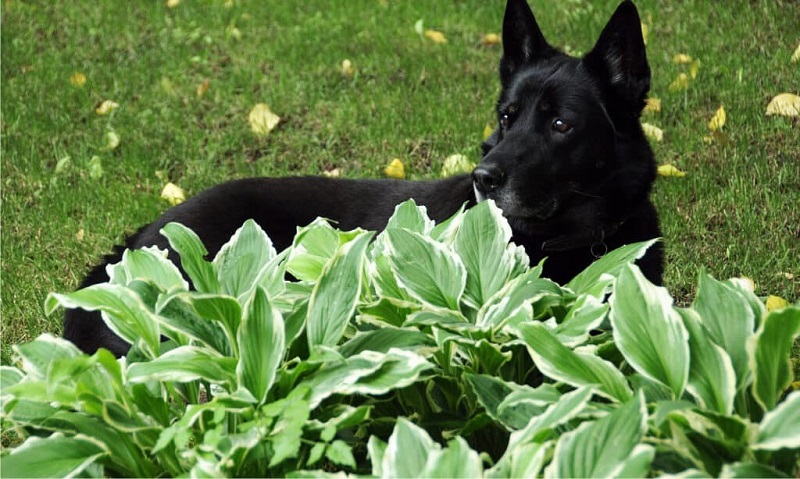
To prevent accidental ingestion, consider keeping hosta plants out of reach of your dog or choosing alternative plants that are non-toxic to pets if you have dogs in your household. Always consult with your veterinarian for specific advice based on your dog’s health and circumstances. Specifically:
Chemical Composition
Hostas contain substances known as saponins, which are glycosides with foaming properties. While these compounds are generally harmless to humans, they may have different effects on our furry friends. Saponins can cause gastrointestinal upset in dogs, leading to symptoms such as vomiting and diarrhea.
Toxicity Levels
The toxicity levels in Hosta plants are relatively low, making severe poisoning rare. However, individual sensitivities vary among dogs. Small breeds or those with pre-existing health conditions may be more susceptible to adverse reactions.
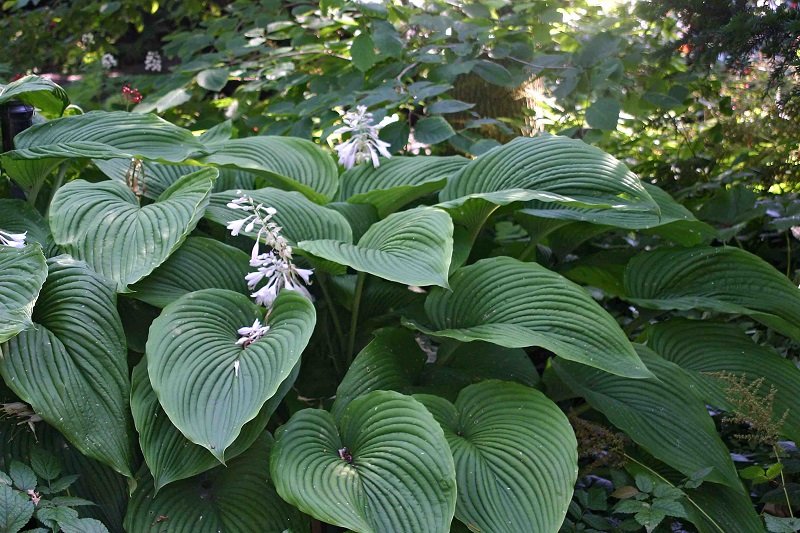
To prevent accidental ingestion, consider keeping hosta plants out of reach of your dog or choosing alternative plants that are non-toxic to pets. Always consult with your veterinarian for specific advice based on your dog’s health and circumstances.
Signs of Hostas plant poisoning in Dogs
If a dog has ingested hosta plants or any part of them, it can exhibit various signs of poisoning. The severity of symptoms may depend on factors such as the amount ingested and the size of the dog. Signs of hosta plant poisoning in dogs may include:
- Vomiting: This is a common early sign of plant poisoning. The dog may vomit shortly after ingesting the hosta.
- Diarrhea: Diarrhea can occur as a result of ingesting toxic substances. It may be accompanied by changes in stool consistency and color.
- Lethargy: The dog may appear weak, tired, and less active than usual.
- Loss of Appetite: A decreased interest in food or a refusal to eat can be a sign of poisoning.
- Drooling: Excessive drooling or hypersalivation may occur.
- Incoordination: The dog may have difficulty walking or appear unsteady on its feet.
- Depression: The dog may seem unusually sad or disinterested in its surroundings.
- Abdominal Pain: The dog may exhibit signs of discomfort or pain in the abdominal area.
- Increased Heart Rate: In some cases, the ingestion of toxic plants can lead to an elevated heart rate.
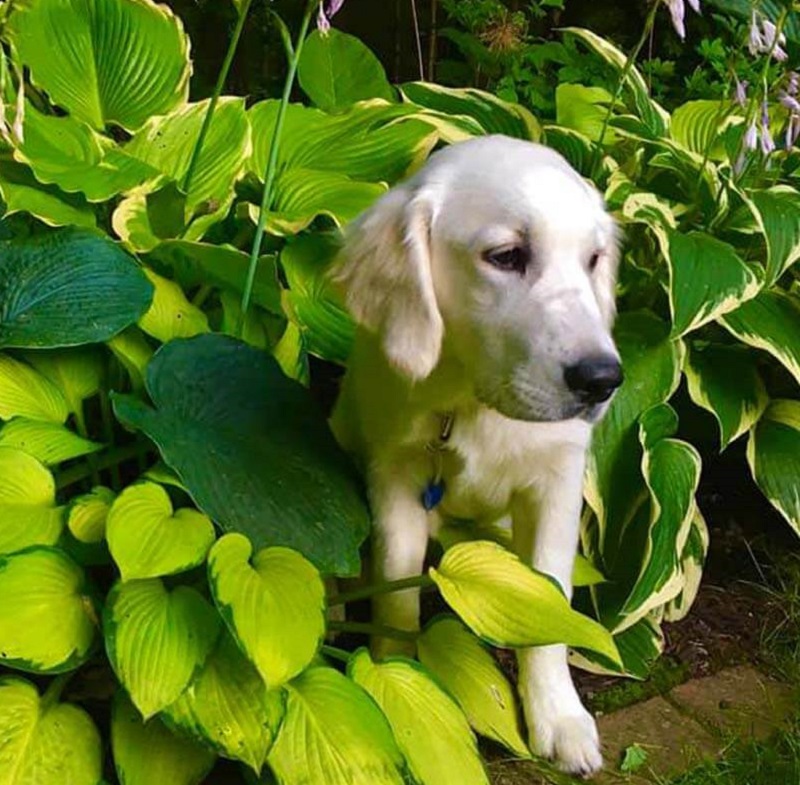
If you suspect your dog has ingested hosta plants and is showing any of these signs, it’s essential to seek veterinary attention promptly. Contact your veterinarian or an emergency animal poison control hotline for guidance. Providing the veterinarian with information about the plant, the amount ingested, and the dog’s size and breed will assist in determining the appropriate course of action.
Remember, prevention is key. Keep potentially toxic plants out of reach of your pets and monitor them closely when they are outdoors. If you’re unsure about the safety of a particular plant, consult with your veterinarian or refer to a reliable list of plants toxic to dogs.
What should you do when your dog eats a Hostas plant?
If you suspect or know that your dog has ingested a hosta plant, it’s important to take prompt action to minimize the potential for toxicity. Here are steps you can take:
Contact your veterinarian:
- Call your veterinarian immediately to inform them of the situation.
- Provide details such as the type of plant (hosta), the amount ingested (if known), and your dog’s breed, age, and weight.
Observe your dog:
Monitor your dog closely for any signs of poisoning, such as vomiting, diarrhea, lethargy, incoordination, or other unusual behavior.
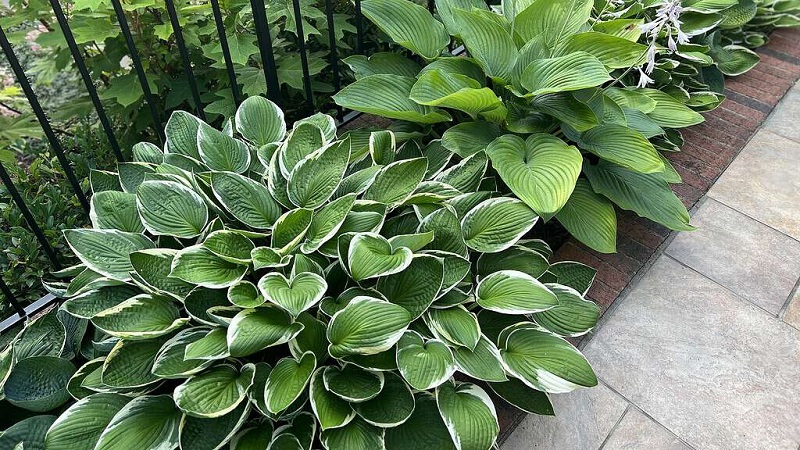
Do not induce vomiting without guidance:
Inducing vomiting is not always recommended, and it can be harmful if done incorrectly or if the ingested substance is caustic. Follow your veterinarian’s advice regarding whether to induce vomiting.
Keep plant material:
If possible, save a sample of the plant material your dog ingested. This can be helpful for the veterinarian to identify the plant and determine the appropriate course of action.
Seek professional guidance:
If your veterinarian is not available, contact a local emergency veterinary clinic or a poison control hotline for pets. In the United States, the ASPCA Animal Poison Control Center (APCC) and the Pet Poison Helpline are two such resources.
Follow veterinary advice:
Based on the information provided, the veterinarian or poison control center will guide you on the next steps, which may include bringing your dog in for examination, administering activated charcoal, or other appropriate treatments.
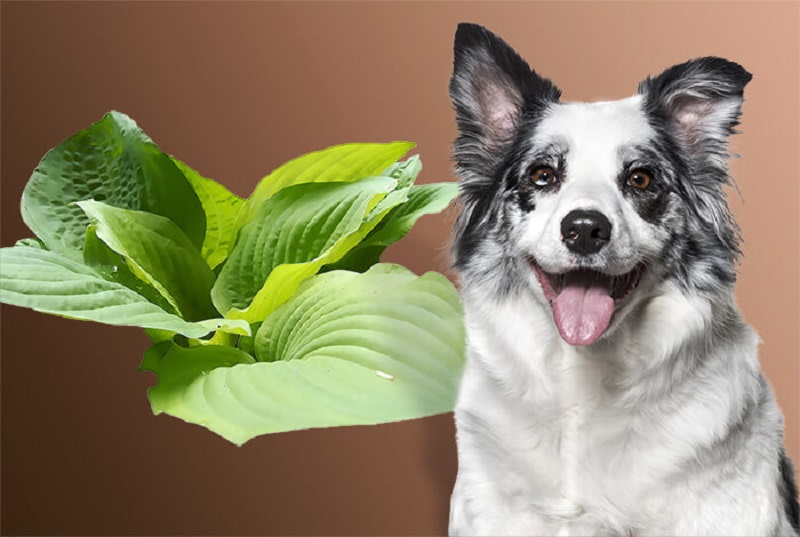
Early intervention is crucial in cases of potential poisoning. If in doubt, always seek professional veterinary advice. Additionally, take steps to prevent further incidents by keeping toxic plants out of reach and creating a safe environment for your dog.
Effectively prevent dogs from eating Hostas plants
Preventing dogs from eating hosta plants involves a combination of training, environmental management, and providing alternative options. Here are some strategies:
Training and Supervision:
- Train your dog to respond to basic commands such as “leave it,” “drop it,” and “stay.” This can be useful in redirecting their attention away from plants.
Supervise your dog when they are outdoors to intervene if they show interest in chewing on plants.
Create a Dog-Friendly Garden:
- Designate an area in your garden specifically for your dog, filled with dog-friendly plants and toys to keep them occupied.
- Choose non-toxic plants or consider using planters for potentially toxic plants to limit your dog’s access.
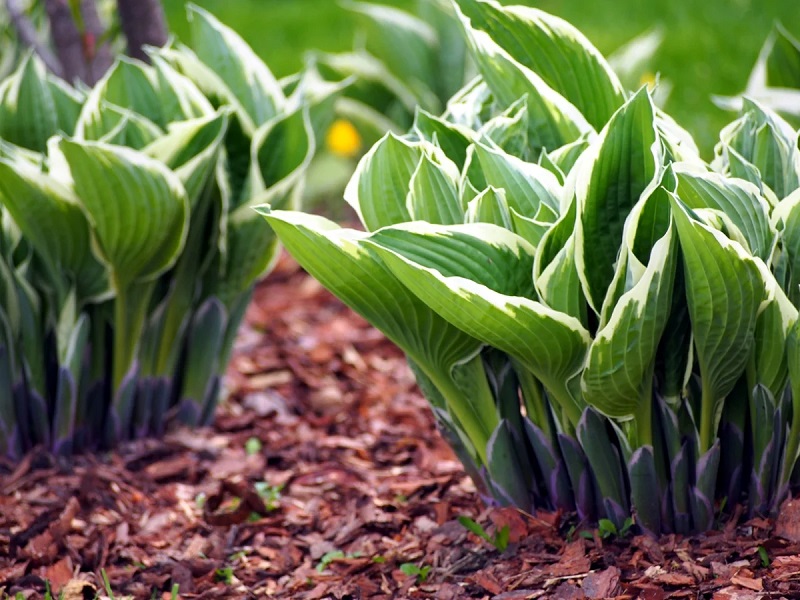
Physical Barriers:
- Use barriers such as fencing to restrict access to certain areas of your garden where toxic plants are present.
- Consider placing decorative fencing or plant borders around hosta plants to physically deter your dog from reaching them.
Bitter Sprays:
Apply bitter-tasting sprays or deterrents on the hosta leaves. These can be found at pet supply stores and are designed to discourage dogs from chewing on sprayed surfaces.
Positive Reinforcement:
- Reward your dog with treats and praise when they ignore the hosta plants or show interest in their designated play area.
- Reinforce positive behavior to create an association between good behavior and rewards.
Provide Alternative Chewing Options:
- Give your dog safe and appropriate chew toys to redirect their chewing behavior away from plants.
- Consider toys that can be filled with treats or peanut butter to make them more enticing.
Training Aids:
Consider using training aids, such as pet-friendly repellents or motion-activated deterrent devices, to discourage your dog from approaching the hosta plants.
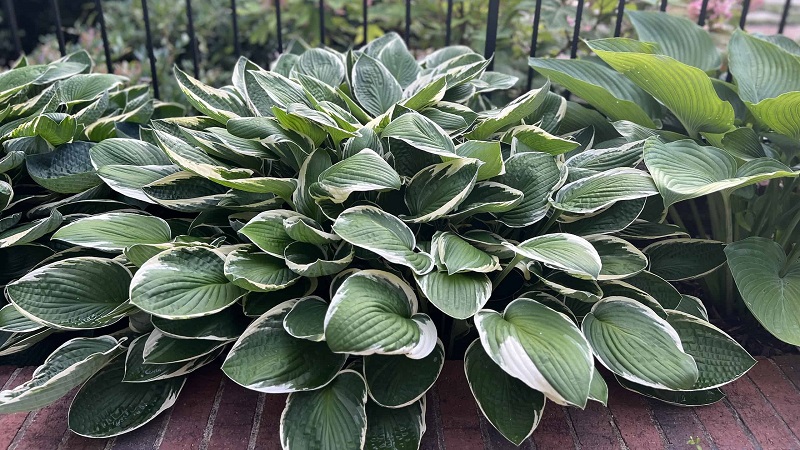
Regular Exercise and Mental Stimulation:
Ensure your dog gets plenty of exercise and mental stimulation to reduce boredom, which can lead to undesirable behaviors like plant-chewing.
Consult with a Professional Trainer:
If your dog’s behavior persists despite your efforts, consider seeking the assistance of a professional dog trainer or behaviorist for personalized guidance.
Each dog is unique, and the effectiveness of these strategies may vary. Consistency and positive reinforcement are key components of successful training. If you have concerns about the safety of specific plants or your dog’s behavior, consult with your veterinarian for tailored advice.
In Conclusion: Nurturing Harmony in Your Garden
In the grand tapestry of gardening, where flora and fauna coexist, responsible pet ownership necessitates a nuanced understanding of the plants that share our spaces. As we decipher Are Hosta Plants Poisonous To Dogs?, it becomes evident that while Hostas may pose a minimal risk, proactive measures can ensure a harmonious coexistence.
In cultivating our gardens, let us not only nurture the beauty of nature but also prioritize the safety and well-being of our loyal canine friends. Through informed decisions and a watchful eye, we can create a sanctuary where both plants and pets thrive in unison.